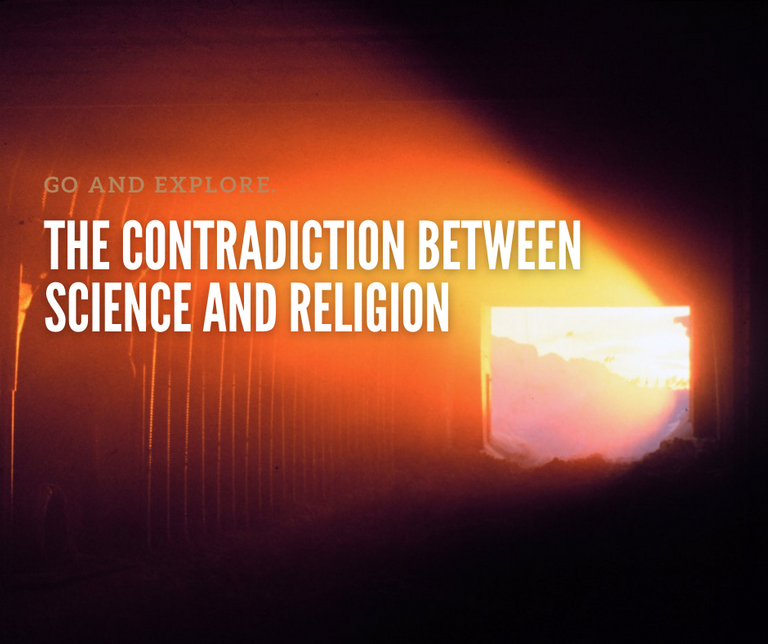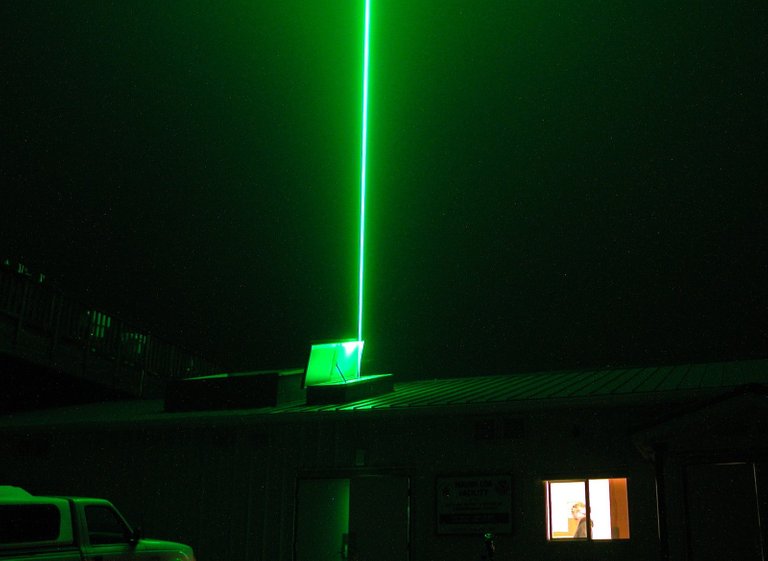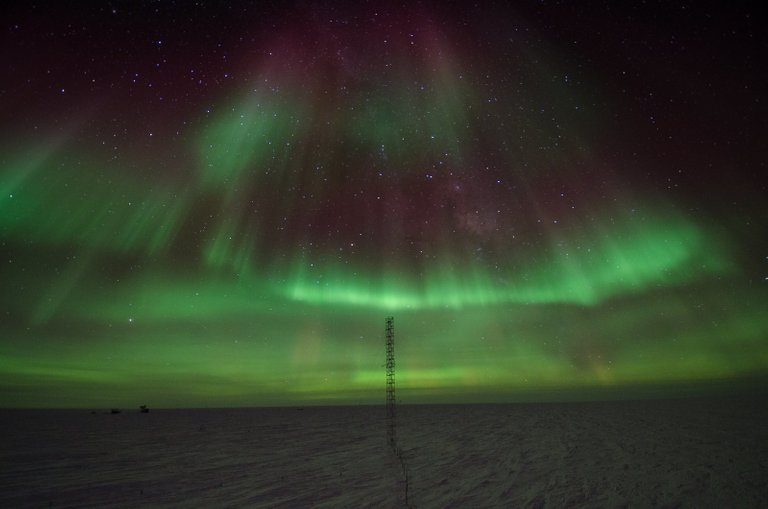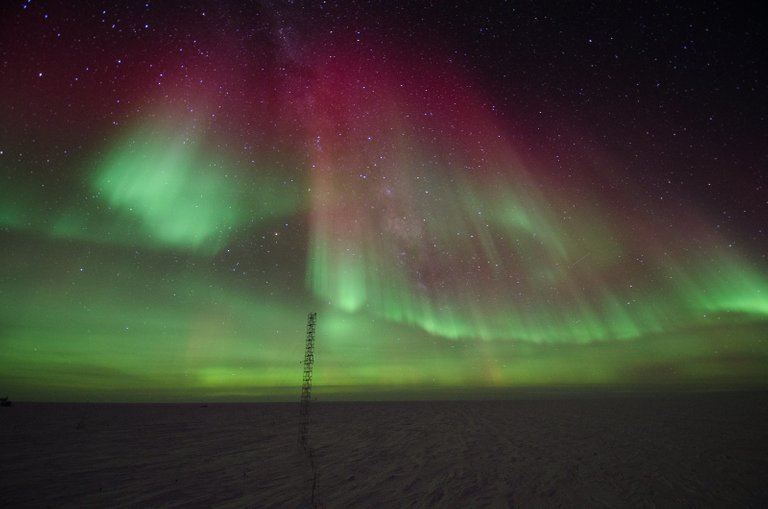Science meet Religion: When does it intersect and contradict?
Science meets Religion is a blog series that provide conversation about the middle ground between Science and Religion as we seek answer to the universe and life's big questions.

Our lives profoundly relied on scientific and technological advancements. Most families should expect to lose one or more children to sickness in the nineteenth century. In the United States and other industrialized countries, the death of a child due to illness is now unusual. Every day, we rely on technology that is made possible by scientific knowledge and procedures. We have usable technology, medicine, and food produced by innovative processes from years of scientific research. Science has improved living standards, allowed humanity to go to the moon and into Earth's orbit, and given us new perspectives on ourselves and the universe.
We regarded evolutionary biology as a cornerstone of modern science, enables us to understand evolution and the prevention and treatment of disease. It aids us in developing new agricultural goods and the invention of new industrial items. More broadly, evolution is a fundamental idea in biology, which we relate to its past life forms and the relatedness and diversity of modern creatures.
We have rapid advances in biological sciences and medicine due to understanding evolution, which resulted from an ever-expanding fossil record, and technology for modern biology and molecular sciences. There are still many intriguing questions to be solved in any dynamic field of science, and this brochure outlines some of the current research efforts tackling evolution-related issues.
However, studies suggest that many individuals remain skeptical of our understanding of biological evolution. They might have been told that science's understanding of evolution is inadequate, inaccurate, or in question. They may be suspicious that evolution could have generated such a diverse range of living creatures, from microscopic bacteria to whales and redwood trees, from sponges on coral reefs to humans capable of contemplating the planet's history. They may ponder if evolution may be accepted while still adhering to religious beliefs.
I'll use another example from modern physical science to illustrate my point. There have been two ideas about the physical nature of light since the seventeenth century, dating back to Newton and Huyghens. Newton proposed that a beam of light is a stream of particles known as corpuscles, which impact the retinas and produce the impression of light. Despite Newton's reputation, several famous scientists in the early 1700s disagreed with his corpuscular theory. When two beams overlapped, some of the particles would collision, causing a deviation in the light beams, which not the case.
Huyghens argues that light is a wave of shaking in an all-pervading ether that travels along a beam of light. Huygens was successful in determining the rules of light reflection and refraction. Using this theory, he was also able to explain the linear and spherical propagation of light. He was unable, however, to explain the diffraction effects of light. Later, in 1803, Thomas Young's experiment on light interference confirmed the Huygens wave theory of light to be valid.
Both theories are mutually exclusive. Newton's hypothesis was accepted in the eighteenth century, while they considered Huyghens' hypothesis in the nineteenth. Scientists must leave it at that and hope for a broader perspective that reconciles both in the future.
We can apply the same ideas to issues where science and religion disagree. Nothing in any sphere of thinking should take unless it appears to have proof and sound reasoning based on a critical investigation undertaken by ourselves or certified experts. However, assuming that we discussed this care honestly, a disagreement between the two on minor details where they overlap should not cause us to forsake beliefs for which we have strong evidence.
One set of doctrines may pique our curiosity more than the other. However, if we have any sense of perspective or intellectual history, we will wait and refrain from reciprocal anthologies. We should wait, but not in a passive or despondent manner. The conflict indicates deeper realities and perspectives on which religion and a subtler science reconcile.
In some ways, we overemphasized the battle between science and religion, although it is a minor issue. A logical contradiction cannot indicate much more than they need for some minor changes on both sides. Keep in mind the vastly diverse parts of events that we discussed in science and religion. Religion is entirely devoted to the contemplation of moral and aesthetic qualities, whereas science is concerned with the general conditions and observed to regulate physical occurrences. The law of gravitation is on our one hand, while contemplation of the beauty of holiness is on the other. What one party notices, the other overlooks, and vice versa.
Consider the lives of John Wesley and Saint Francis of Assisi, for example. For physical science, their lives depict physiological chemistry principles and the dynamics of nervous reactions. For religion, these lives are of historical significance. In the absence of clear and comprehensive scientific and theological principles that apply to these unique circumstances, the narratives of these lives from these opposing perspectives contain inconsistencies? If this were not the case, it would be a miracle.
When we think of this topic, our mind faces the struggle to find a middle ground between religion and science. It appears that science and religious beliefs reached a point of conflict from which there is no escape. Controversialists on both sides have pushed for their version of the conclusion. Of course, not by all controversialists, but by those incisive minds that every conflict brings to the surface. People accused Galileo of heresy when he claimed that the Earth moves while the sun remains stationary, citing their long-held belief in the Copernican view.
It would, however, be missing the point to believe that the struggle between science and religion is unimportant. There can be no active interest in an intellectual age that sets aside all prospects of a picture of truth's harmony. Acquiescing in inconsistency is harmful to honesty and moral purity. It is a mark of intellect's self-respect to pursue every tangle of thought to its conclusion. An awakened thoughtfulness does not produce religion or science if we suppressed that impulse. The question is how we will approach the problem and how they meet a middle ground. We've now arrived at a critical point but still uncertain.
Check out the first blog of the Science meet Religion series.
Science meet Religion is a blog series that converse on the middle ground between #Science and #Religion. The first blog is The Origin of the Universe. Read on #hive https://t.co/X82sLuWegX#Posh #StemSocial #StemGeeks #proofofbrain
— Jayson Jueco (@juecoree) June 12, 2021
Readings
Alain Aspect, From Huygens' waves to Einstein's photons: Weird light, Science Direct.
Alfred North Whitehead, Religion and Science: Religion will not regain its old power until it can face change in the same spirit as does science., The Atlantic.
The National Academies of Science, Engineering and Medicine The Intersection of Science and Religion, Evolution Resources.
Jerry Coyne, Yes, there is a war between science and religion, The Conversation
Photo Credit: National Oceanic and Atmospheric Administration. All photos are CC BY 2.0. | Album links: Observatories and Auroras



By making this the foundation of your argument, it immediately invalidates all that follows as it is flawed. I find nothing more in religion than simple power and control. Both morality and aesthetic qualities are subjective and the fact that part of these 'qualities' are universally accepted does not indicate they were defined by religion.
Great writing and very interesting articles.
I agree that it may invalidates some of the following statements and it is flawed when saying this argument. It is the flaws that makes the contradiction between science and religion beautiful. Religions anchors to morality which is subjected while science can be objective through scientific method. However, I see religion and science can be both subjected specifically when we are interpreting events and occurrences in nature. As you have mentioned, part of these "qualities" does not depicts a context from religion. I definitely agree with that, but a handful of these "qualities" are influenced greatly by religion. !PIZZA
@nathen007.stem! I sent you a slice of $PIZZA on behalf of @juecoree.
Learn more about $PIZZA Token at hive.pizza (3/10)
You see my friends, after discovering how religion traps us mentally in a box based on ad hoc doctrines for the purpose of control, I hated it with passion, where I'm from it is doing more damage than good. However I later realised that it had to exist, it promoted good morals even though morals is subjective as @nathen007.stem points out - what you consider a good moral for a particular religion can be a bad moral for another religion. Also religion appeared to be the first cause of civilization, Science as at that time was still in it's infancy. Maybe it's foundations needs to be reaccessed to keep it on par with science.
This is what was bad about Religion. As @nathe007.stem pointed out, the subjected nature of Religion is what makes it flaws, especially when doctrine and scripture are misunderstood. These contradictions and flaws are what makes these topics beautiful.
Religion indeed plays a vital role in developing civilization, but I am not sure if its foundation needs reassessment. You know my friend that looking at each religion points out to one thing: "someone causes these events to happen". Whether what name we used to call the Creator, each religion portrays that there is a God. Some scientist will acknowledge that there should be someone or something that causes it to happen like a Grand Design. I think it is the people interpreting the ancient writings, scriptures and doctrines that they need to reassess their understanding of it. !PIZZA
@clinton19! I sent you a slice of $PIZZA on behalf of @juecoree.
Learn more about $PIZZA Token at hive.pizza (4/10)
Dear @juecoree, When you say science and religion, do you mean European science and religion?
At present, I remember that East and Southeast Asia, Islam, and Africa have not yet made their own scientific histories and ideas.
I know only a little of the European science created by the Roman Catholic Church after the European Renaissance.
In fact, East Asia and Southeast Asia have not yet created their own scientific ideas.
From my point of view, you must first explain the history of science in Europe, created by Roman Catholicism in the 13th century, and the process of creation and development of ideas so that I can understand your arguments!😄
Not specific to any groups. It is more general discourse.
Yes, majority of science started from Europe during renaissance. I think East Asia and Southeast Asia has their own scientific ideas but not widely influential as compared to the Europeans and American.
Possibly for another blog. This one is more on a free discourse on the general contradiction of Religion and Science. !PIZZA
@goldgrifin007! I sent you a slice of $PIZZA on behalf of @juecoree.
Learn more about $PIZZA Token at hive.pizza (5/10)
Dear @juecoree, your point of view is great However, from my point of view, I think that East and Southeast Asia have not yet completed their own scientific ideas, methods of thought, and views of history.
https://en.wikipedia.org/wiki/Science_and_Civilisation_in_China
Most modern Korean and Chinese scientists are studying the history of East Asian science by studying the writings of British historian Joseph Needham (1900–1995).
The reason is that East Asian science has not yet reached the level of European science! 😄
Currently, in East Asian science, the realms of science, religion, and philosophy have not been separated!
Has Southeast Asian science not yet created its own scholasticism?
Congratulations @juecoree! You have completed the following achievement on the Hive blockchain and have been rewarded with new badge(s) :
Your next target is to reach 2750 replies.
You can view your badges on your board and compare yourself to others in the Ranking
If you no longer want to receive notifications, reply to this comment with the word
STOPCheck out the last post from @hivebuzz: